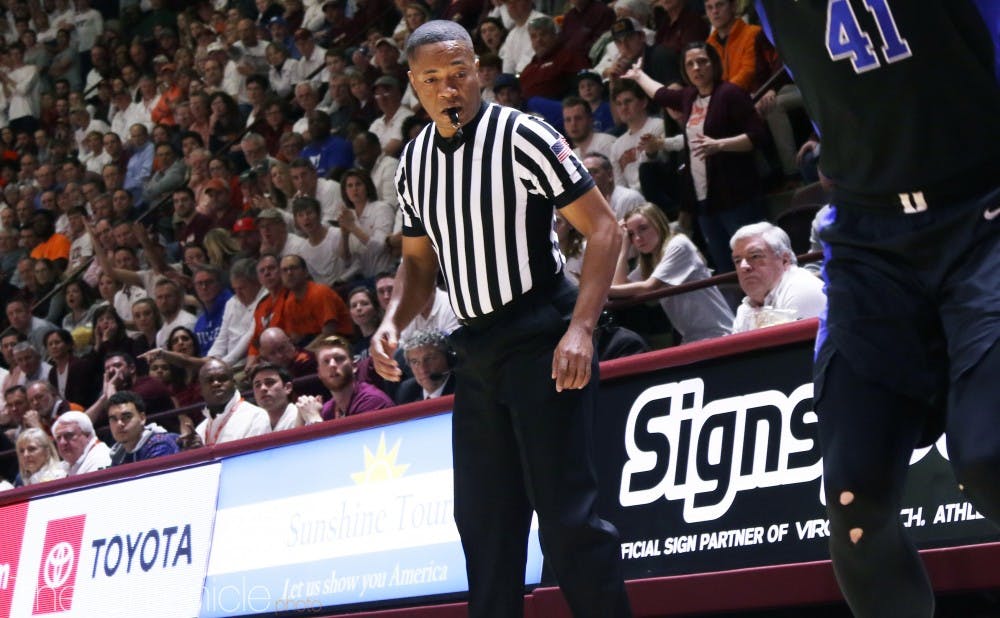I used to be a general proponent of all instant replay in sports, intent on getting every call right, but this college basketball season and a key moment in Monday night's national championship changed my mind.
Incessant reviews disrupt the game's rhythm, but more importantly, I've come to believe they create as many unfair outcomes as they prevent, including a travesty of justice that helped decide an epic showdown between Virginia and Texas Tech. The right call based on the letter of the law and super slow-motion replays isn't always the right call based on common sense and more than 125 years of the sport's history.
With the clock ticking down toward a minute left in overtime, Cavalier forward De'Andre Hunter reached in to knock the ball out of bounds as Davide Moretti dribbled down the court. Every player and coach on both benches, all 72,062 fans in attendance and millions more watching at home knew the ball belonged to the Red Raiders, who trailed 75-73 and would have a chance to tie the game or take the lead. The referee next to the play saw the same thing and made the obvious call.
Then came the dreadful sight of the officials heading to the monitor at the scorer's table to review the play. Why was such a great game being put on hold to double-check something that was so crystal clear?
Well, the replay showed that after Hunter made contact with the ball, Moretti's pinky was actually the last body part touching it before it went out of bounds. The call was reversed, Virginia gained possession and hit two free throws, and the game was never within three points again.
It was the correct call by a strict interpretation of the rule, but it wasn't a fair call. It was a bigger officiating gift to the Cavaliers than the missed double-dribble that kept them alive in the semifinals against Auburn or the phantom trip that gave Kyle Guy two free throws earlier in overtime. At least those were easy to miss in live action—I didn't notice the errors as I watched both games, and the referees who have trained for decades to be arbiters of the rules didn't, either. Human error is part of sports.
This one was clearly Texas Tech's ball, only to be ripped away from the Red Raiders due to a silly semantic look at the play that probably made James Naismith squirm in his grave.
I'm not just a biased observer who's singling out this play because I'm bitter about the outcome of the game. In fact, I'm a very biased observer—everybody who knows me knows I've loved watching Virginia basketball since its dynasty began in the 2014 ACC tournament, kept believing in Tony Bennett's system even after the ultimate humiliation against UMBC last year and was thrilled to see the program reach the mountaintop in Minneapolis, silencing all the misguided doubters.
But as much as the Cavaliers represent everything that's great about college basketball, they won with the help of something that's very wrong with the sport. That play has been called the same way at every level of basketball for more than a century. It happens 10 times a game before the last two minutes, when out-of-bounds plays become reviewable. The team that knocks the ball out of bounds shouldn't and doesn't gain possession.
There's also the issue that sometimes a referee may think a defender slapped the ball out of bounds but actually slapped an offensive player's arm without touching the ball. Then, a replay review has to give possession to the defensive team, a fraudulent reward for a clear foul. That's not a fair outcome.
Replay has run its course with these unintended consequences, and it's time to get it out of the game. While we're at it, let's look at baseball too and stop overturning safe calls that have been safe for 100 years because a baserunner beats the throw but just barely comes off the bag as he slides through on a slow-motion replay.
It's still fine to review egregious clock errors and whether a player releases a shot before the buzzer. Those plays are black-and-white. But out-of-bounds calls should involve subjectivity that aligns with the spirit of the law, something that trained officials understand a lot better than inanimate expensive cameras zoomed in on the ball.
Get The Chronicle straight to your inbox
Sign up for our weekly newsletter. Cancel at any time.

